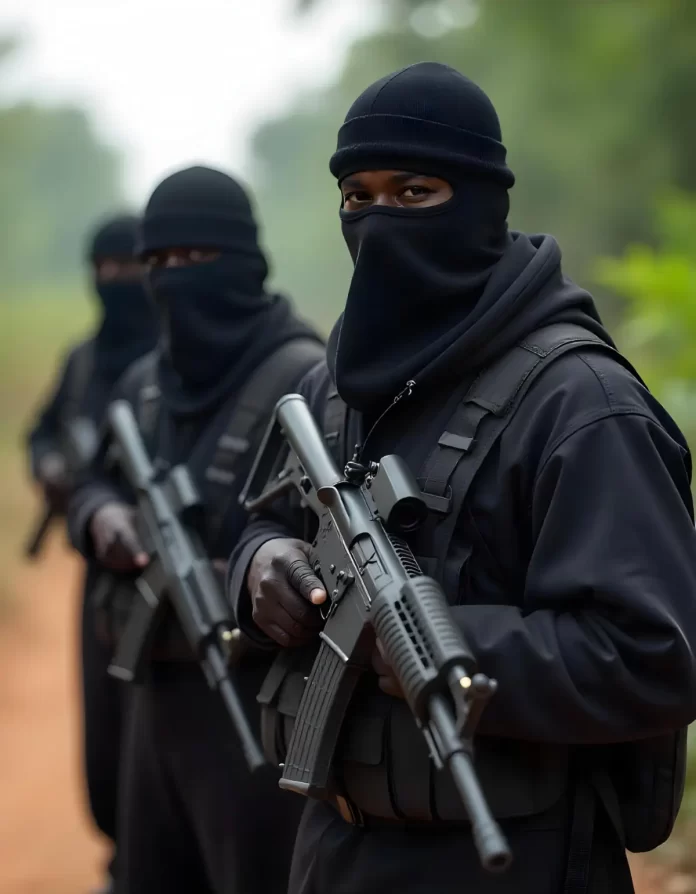President Bola Tinubu has promised that the gunmen who killed many people in some communities in Plateau State would be apprehended and face severe punishment under the law.
Gunmen had two weeks ago stormed several villages in the Bokkos Local Government Area of Plateau State, killing no fewer than 80 people.
Tinubu condoled with the families of the victims in Ruwi, Hurti, and Tadai communities in Bokkos Local Government and those from Manguna and Dafo villages, where the gunmen launched brutal attacks, killed many locals and destroyed property.
“I have directed security agencies to hunt down the attackers, and they will face severe punishment when apprehended,” Tinubu said in a statement by his Special Adviser on Information and Strategy, Bayo Onanuga.
The report of serial violent attacks in communities in Plateau State by mindless gunmen saddens all Nigerians who see the attacks on defenceless citizens as unacceptable.
These intermittent attacks should have no place in our country at a time when the Federal Government is working so hard to restore peace and order in all parts of our country.
Plateau is one of the most scenic states in Nigeria that has been turned into a theatre of sorrow, tears, and blood by Fulani terrorists.
The killings are pregnant with signs of a failing state, as the government has ceded its power of coercion to non-state actors. The meaningless visits by the heads of the security forces do nothing to dispel that impression.
“We urge all citizens, regardless of ethnic, religious, or political affiliations, to uphold the shared humanity that binds us all, embrace peace and reject retaliation.”
Nigeria ranks sixth in the 2025 Global Terrorism Index after a score of 7.658 out of 10. In 2023 and 2024, it ranked eighth.
There has been a long list of gory killings in Plateau State since 1994, when five lives were lost after the indigenous people of Berom, Anaguta, and Afizere rejected a sole administrator for the Jos North LGA, till the April 2, 2025 massacre.
After the clashes claimed 2,000 lives between 2001 and 2005, President Olusegun Obasanjo declared a state of emergency in Plateau. He blamed former Governor Joshua Dariye for failing to end the ugly situation.
In Nigeria, the centre controls the security structure—from the police to the military. President Tinubu also cited the same worn-out excuse to declare a state of emergency in Rivers State on March 18, 2025.
The state of emergency did not end the cycle of violence. Sadly, none of Obasanjo’s successors has been able to end the killings.
A report by Human Rights Watch stated that the conflicts in Plateau State have claimed more than 7,000 lives, displacing up to 220,000, since 2001.
In January 2010, the police reported that 326 people were killed by gunfire after another clash between Muslim and Christian gangs in Jos.
Instead of a solution, the political leadership worsens the mayhem. At a May 2004 meeting with Plateau leaders in Jos, the state capital, on the recurring violence, Obasanjo derisively heaped blame on the leadership of the Christian Association of Nigeria.
Despite the deployment of special military units in the state, the carnage has intensified. While some observers blame the clashes on the struggle for land between some indigenous ethnic groups and Fulani herdsmen, mutual accusations of ethnic cleansing have persisted.
Reasons adduced for the lingering bloodshed include climate change, violent Fulani herders’ attacks on settled farmers and Christian-Muslim conflicts, economic and political factors, indigene/settler feuds, growing population, water scarcity and illegal mining.
There must be a decisive disarming of all the warring groups by security agents. Though the security agencies claim to have made arrests, there are no records of convictions.
It is the farming season, and clashes over land are bound to occur. Heaps of yams were burnt in a market in Bokkos during the April 2 attacks. Such destructive tendencies compound the food scarcity in the country. When people cannot go to the farm, it threatens food security.
The government at different levels has a responsibility to rein in the violent herders, who arrogantly claim they are searching for grazing land. This has pitted them in constant conflict with indigenous communities across Nigeria. Ranches need to be provided in states so that open grazing can be effectively stopped.
Security challenges have become multi-faceted with the growing population and the influx of foreigners through the country’s porous borders.
The Plateau killings reinforce an underlying security crisis. Without fundamental reform, Nigerians will continue to be at the mercy of kidnappers, Fulani herdsmen terrorists, bandits, and Salafists.
No community should have to endure the kind of calamity going on in Plateau State. All Nigerians must unite to foster peace and stability. We urge all citizens, regardless of ethnic, religious, or political affiliations, to uphold the shared humanity that binds us all, embrace peace and reject retaliation.
The sanctity of human life must never be taken for granted. These heinous attacks on innocent people are totally unacceptable and must be condemned by all.
We urge security operatives to intensify efforts in tracking down the perpetrators and bringing them to justice.
As Nigerians, we must continue to take deliberate steps to end this cycle of violence, by strengthening security collaboration, promoting dialogue, and implementing policies that encourage peace and unity.
We call on community leaders, religious groups, and civil society organizations to support government efforts by preaching peace, tolerance, and forgiveness, because no meaningful development can take place in an atmosphere of violence and anarchy.

